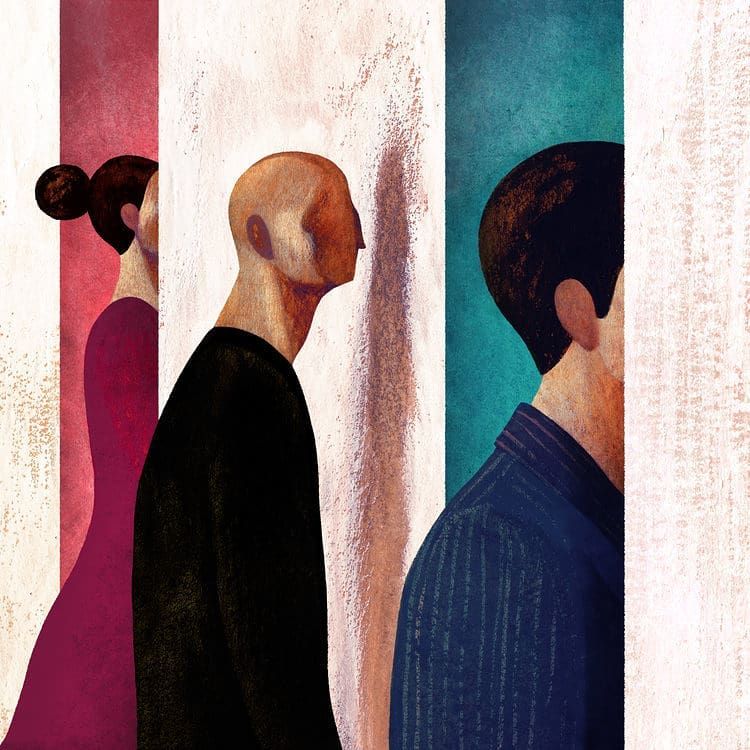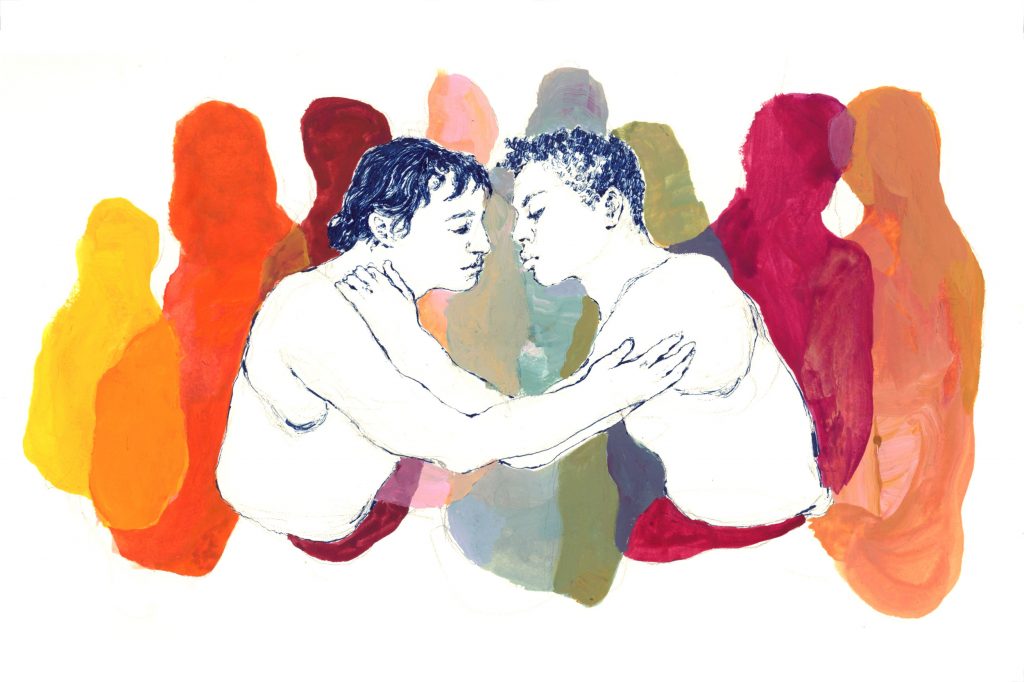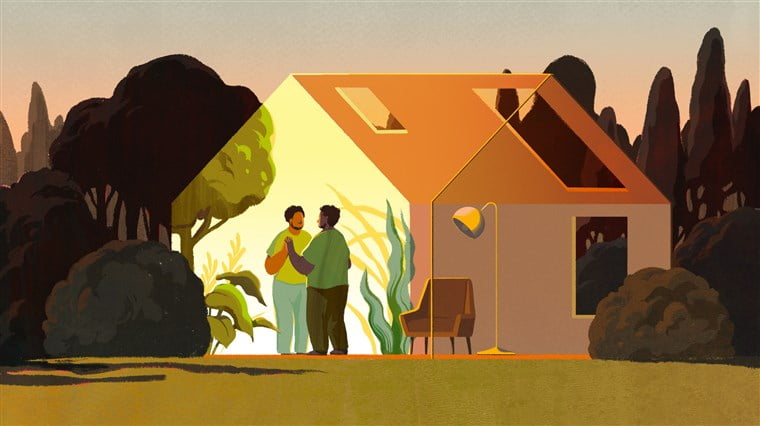Editor’s Note: This month, that is September 2020, FII’s #MoodOfTheMonth is Boys, Men and Masculinities, where we invite various articles to highlight the different experiences of masculinity that manifest themselves in our everyday lives and have either challenged, subverted or even perpetuated traditional forms of ‘manliness’. If you’d like to share your article, email us at pragya@feminisminindia.com.
Trigger Warning: Sexual Violence
People who know me, or know of me, have always described me as a ladyboy. Why? Ask them. I could talk about the feminine presence in me, but I think I’d rather talk about the other half of me—that half that I’m supposed to be. For the longest time, I have believed the men in my life have failed me. The man who raised me, the brother who was supposed to adore me, and the boy that I fell in love with—all did their bit. And that’s what I think made my world a tad bit more feminine.

My parents raised me a boy—the eldest son, the elder brother, the best and brightest at school. That is what they wanted me to be. The eldest son was a matter of fate, you can say. Becoming an elder brother was a choice I’m not sure I made or got imposed on me. Both my parents were working by the time I reached the age of nine. My brother is just a year younger than me, and the way we grew up, I was expected to be the one to take care of him. And I did.
At the age of nine, I cooked, I cleaned, I fed my brother, put him to sleep, waited for my parents to get home, all the while also maintaining to be at the top of my class. They raised me to believe that by being at the top, you become successful—by far the most ‘Indian’ thing I know. Fast forward to my 10th grade, I didn’t have a single person in my life that I’d call a ‘friend’. You see, they also forgot to tell me that being on the top comes with an ugly view of loneliness. My mother already had two lung surgeries, and all hopes of her successful career were shattered, which made her put everything that she had left—the anger, the resentment, and a little bit of vigor—all on me. I was, as she said, her last hope of seeing something good in her life; like the pressure wasn’t already enough. And that’s when he came into my life.
I was raised as a man, yet I still feared them. Was it the boy who tried to put his penis in me in eighth grade—was that him? Did he do that—make me uncomfortable with men? Sure! But what about the man who raised me? Who looked at me with a raging sense of disgust and shame, was he to blame? Or the countless other men who every time I opened my mouth and spoke with my polite and tender voice, laughed at me called me a ‘meetha’ or a ‘chakka‘, was it them? Who was it?
I was at another school for some cultural event, browsing through the various booths—that’s when I caught his eye. I was looking at one of those slap-on-scales, that you know we used to slap on our wrists and they’d stay like that? That’s when this boy comes up to me to make me try one of the prettier ones. It looked good on me, he said, slapping a barbie scale on my wrist. And good it looked! That brief moment of constant glancing that I’d only read in Austen novels felt good and uncomfortable at the same time.
I was raised as a man, yet I still feared them. Was it the boy who tried to put his penis in me in eighth grade—was that him? Did he do that—make me uncomfortable with men? Sure! But what about the man who raised me? Who looked at me with a raging sense of disgust and shame, was he to blame? Or the countless other men who every time I opened my mouth and spoke with my polite and tender voice, laughed at me called me a ‘meetha’ or a ‘chakka‘, was it them? Who was it?
So, when that boy asked to gift me that scale or to put it on my wrist, I said no. When he asked for my name and number, I said no. That was sensible of me, I guess. But he didn’t stop. He asked around, found out my name and my whereabouts, when and where I used to take my evening walks and chased after me for three months. Ninety days he spent on me and my arrogance, and convinced me to get a burger with him.

Romantic? I guess!
It sure looked like it at that time. That was the first boy who got in. The first person actually who would ask me how my day was, how was I feeling, or whether I wanted a little back massage because he knew how heavy my schoolbag used to be.
Also read: As A Non-Binary Trans Person, I Was Told I Didn’t Qualify…
Countless other tiny things like these he kept doing, and unknown to me, he got in. We loved and we laughed. We kissed, and we danced. We did all the weird things that I used to laugh at, yet we did it. But all inside his bedroom. His parents, woke as they were, gave us a little ‘377 talk’. We were made aware of our criminal existence by them, and how we could get in trouble if we stepped out being us. And they were right.
That was 2015, and people could still hurt us. His parents protected us, protected me. His elder sister let me play makeup with her. And like so, I had settled into this second world of mine. The one where the scars of my first and more real-world were slowly healing. But like all good things, it also came to an end—a sudden, unfortunate, heartbreaking, and world-shattering one. Our board results had come out, and he had scored 7 GPA. That was an event enough for his parents to throw him a party. I had scored 9.6, and my father denied all the gifts my mother had promised me because he expected 10. But as I said, the scars were healing, and I was becoming habitual to the idea of getting something good with him for every bad thing I endured from my parents.
But, I guess someone was watching from up there and decided it was time. He invited me to his party as an early guest, but I couldn’t leave without making a perfect excuse first. So, I told my parents, I was going to get some study material and stationery from the book store, which was thirty minutes away. They never cared enough to ask anything else, when it came to books, except for their cost and the billing receipt. By the time I reached the venue, it was too crowded. The roads were all blocked; even the shopowners were leaving their shops to see what’s going on. Pushing, shoving, and getting in from the leanest gaps, I reached the front, eager to see what’s happening. And boy, do I wish different now!
Countless other tiny things like these he kept doing, and unknown to me, he got in. We loved and we laughed. We kissed, and we danced. We did all the weird things that I used to laugh at, yet we did it. But all inside his bedroom. His parents, woke as they were, gave us a little ‘377 talk’. We were made aware of our criminal existence by them, and how we could get in trouble if we stepped out being us. And they were right. That was 2015, and people could still hurt us.
There had been an accident. A truck driver had run over a man. The paramedics were taking the victim in his bloody clothes inside the ambulance with a man in a suit following him in. And on the side, a woman was loudly crying in the arms of a girl. The girl looked familiar, which, when I got a closer look at made my entire world fade away. It was his sister—the girl. The crying woman was his mother in her arms. The man in the suit who was going in the ambulance turned out to be his father. And it was Him—the man in the bloody clothes.
Three days later, they took him off life support. Twelve days later, I went to his service. His father took me in with tears in his eyes and nothing on his face. His mother hugged me and cried her heart out. Everyone else just stared at me, because I was just a stranger in a blue T-shirt to them.
They don’t tell you when you’re fourteen what and how you are supposed to comfort someone when they lose someone they loved. Hell, the people don’t tell you how you’re supposed to console yourself. I didn’t cry. Not then, not until two years later, when a nervous breakdown made me go into therapy.

And this isn’t a sad story. It’s just a story. It is my story. I’m nineteen years old today, one of the youngest graduates from my University with a bachelor’s degree, looking for a job in this pandemic. Believe it or not, I got better. Instead of getting sad all the time, now I just try to find the irony in them. My father is still the same, but a little tame. The reason—my younger brother being eighteen, a smoker, drinker, and just another fella doing drugs. My mother is a bit better after two more surgeries and finding out that all her hard-earned money is gone. The money that she thought my father saved in her salary account—let’s say for our education was all gone, or vanished. But she is okay now.
We are all okay, I think. At least we all know each other now, and we have adjusted our expectations likewise. I have started dreaming again. Like really dream of all the stuff I want—an Emmy, an Oscar, a Golden Globe, maybe even a Pulitzer. How? I don’t know! We’ll see.
Also read: My Quest For Authenticity: Coming To Terms With Being Non-Binary
I still think about him. Its been almost six years, and I’m yet to find someone half as good. But I do believe I am happy. I know myself more today, who I am, where I am, and how amazing I am. All this beauty in me, I couldn’t have seen without seeing the men in my life for who they were.
And for that, I am thankful.
Harshi is a writer and LGBTQ+ rights activist. She is also a self-identified singer. Her preferred pronouns are she/they and she identifies as a Non Binary Transwomxn. As a professionally trained “man”, she has spent the last decade reading and writing about eccentric people and their experiences around her. Harshi has completed B.A.(HONS.) English from the University of Delhi and M.A. in English from Amity University. She cautions anyone who is thinking of doing the same. Although she thinks she is a realist, she still hopes to see some good change in the history of Human Rights in her country with a little contribution from her writing and activism. You can find them on Instagram- iamharshib.
Featured Image Source: NBC News
About the author(s)
Harshi is a writer and LGBTQ+ rights activist. She is also a self-identified singer. Her preferred pronouns are she/they and she identifies as a Non Binary Transwomxn. Raised to be someone who should just accept the norm , she has spent the last decade reading and writing about eccentric people and their experiences around her. Harshi has completed B.A.(HONS.) English from the University of Delhi and M.A. in English from Amity University. She cautions anyone who is thinking of doing the same. She thinks she is a realist, she still hopes to see some good change in the history of Human Rights in her country with a little contribution from her writing and activism. You can find her on Instagram- iamharshib.





